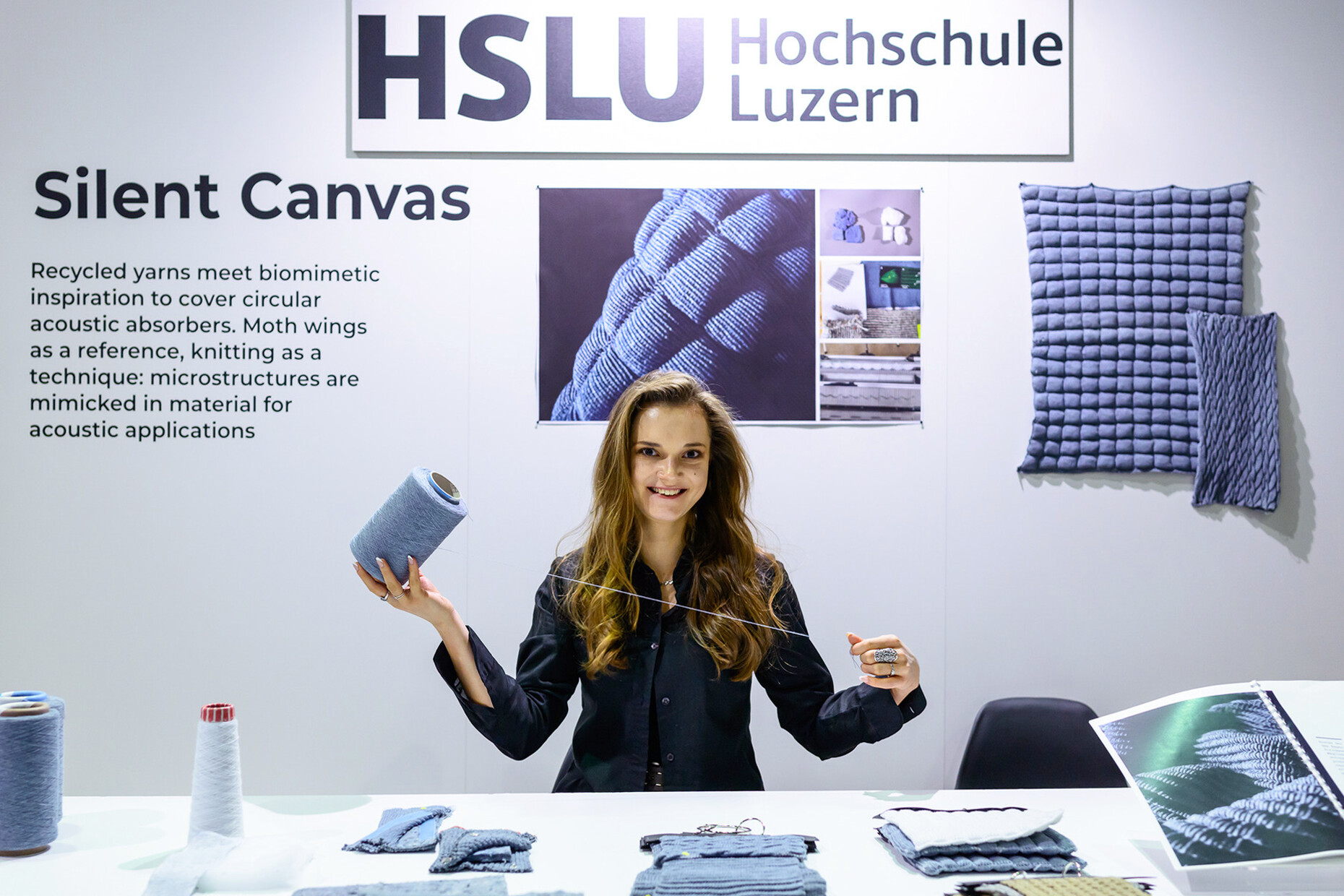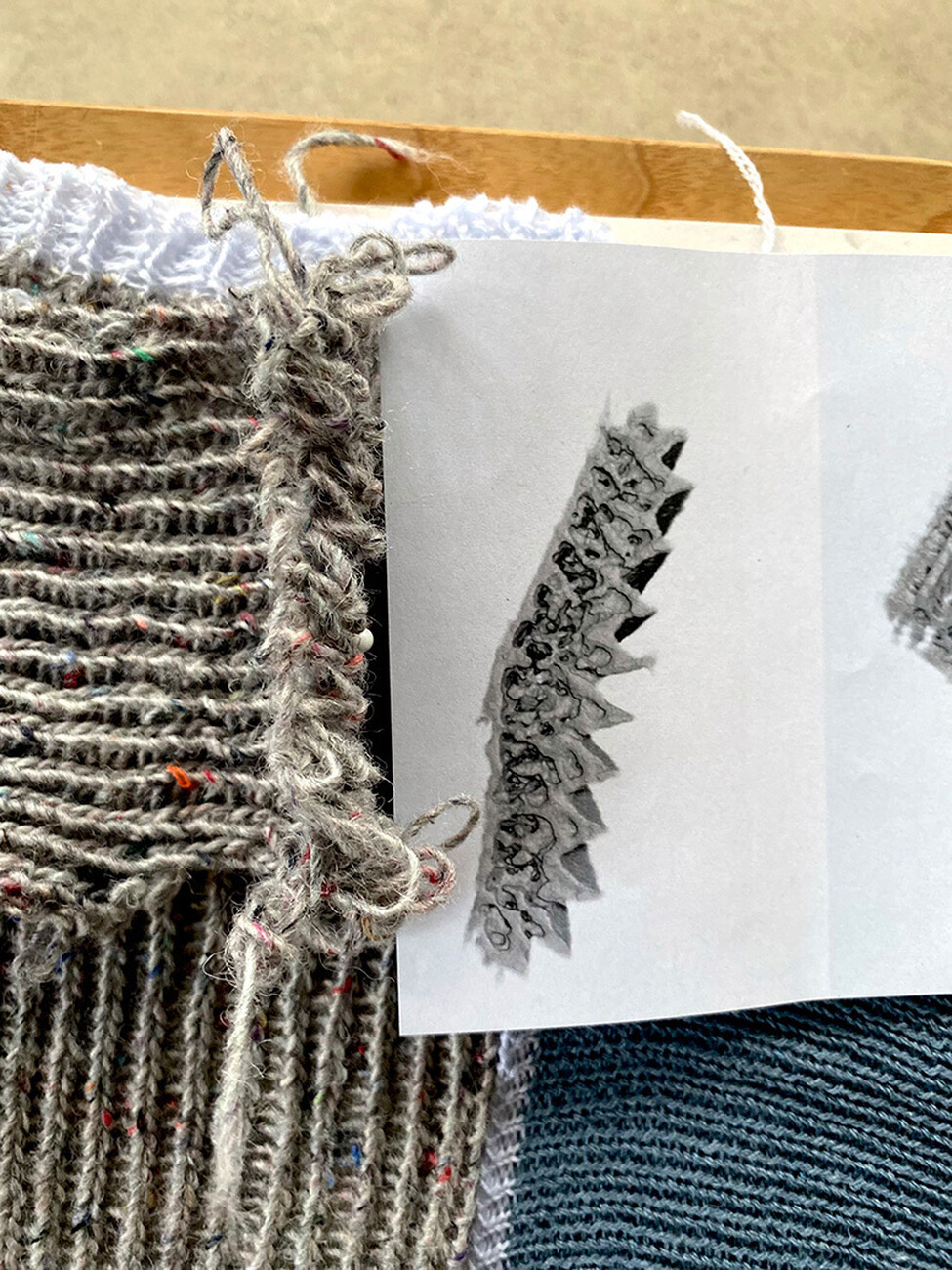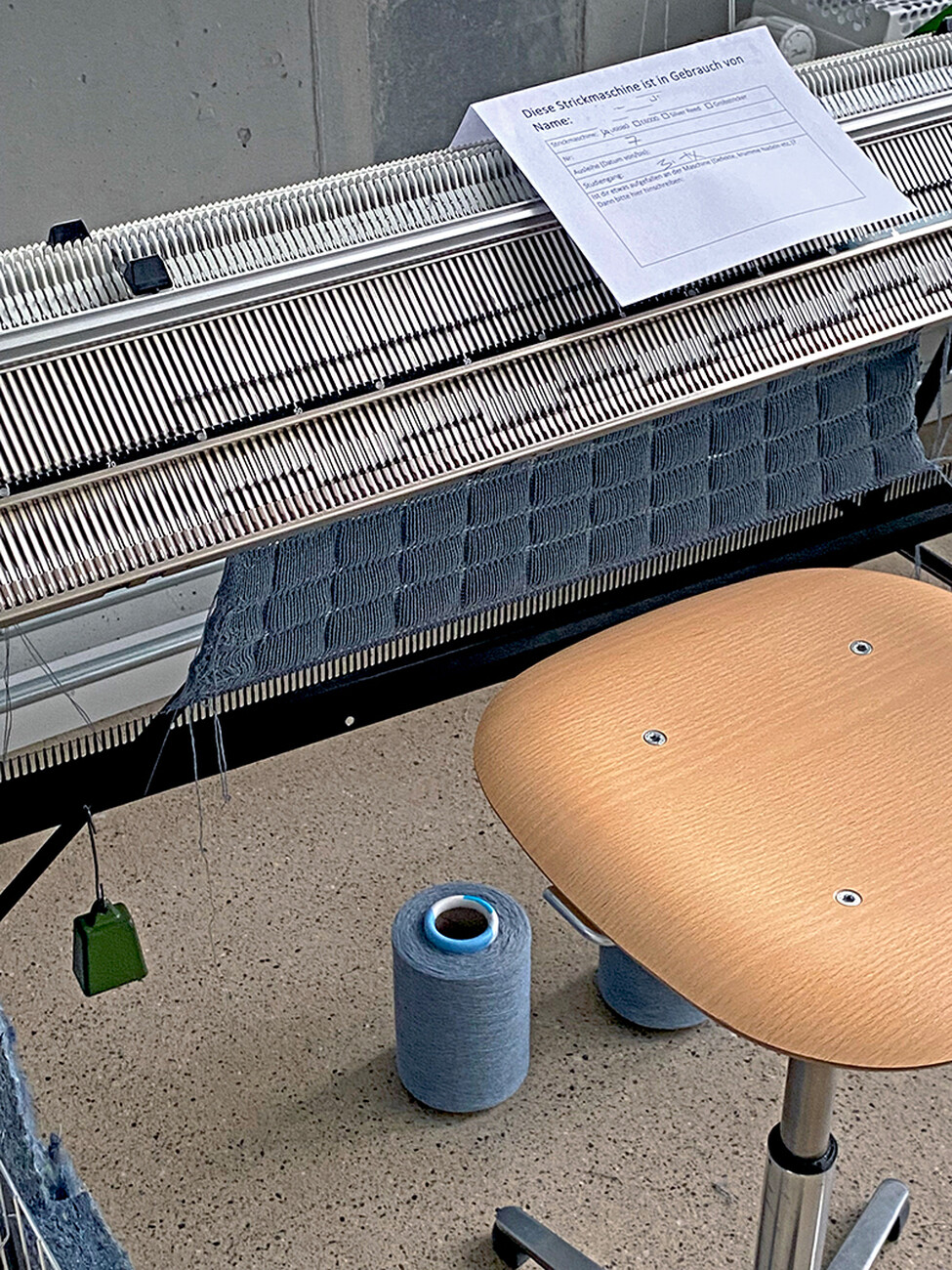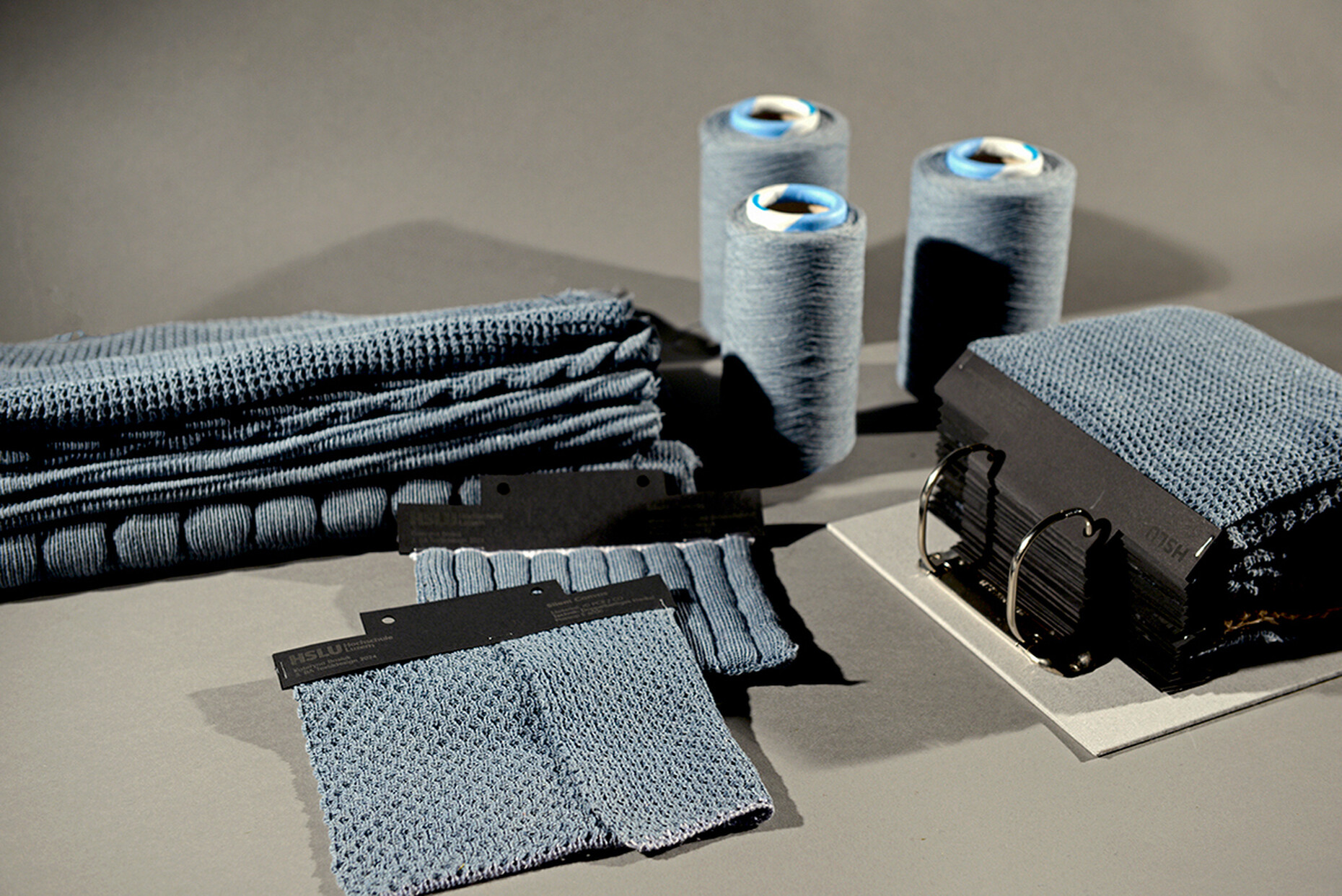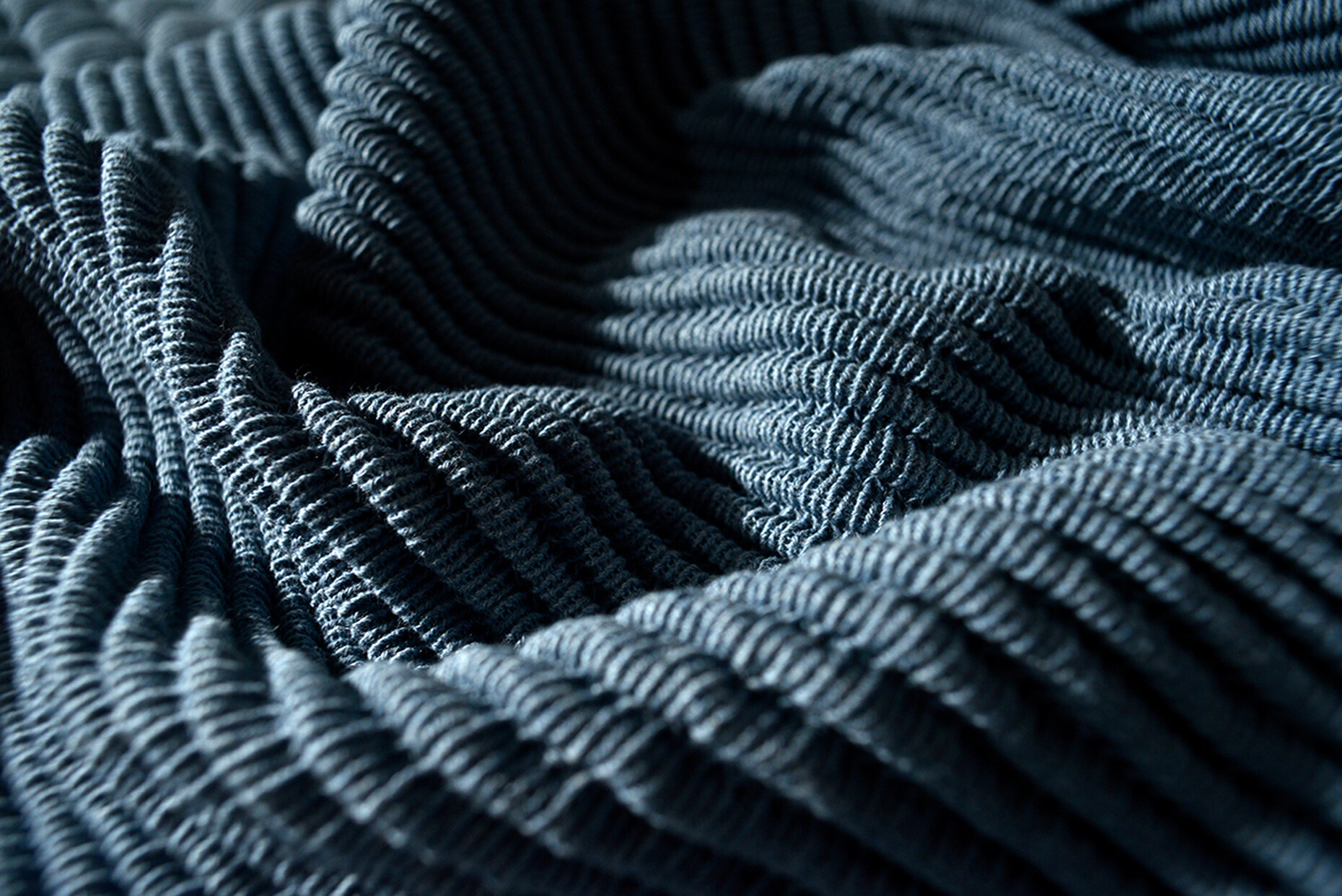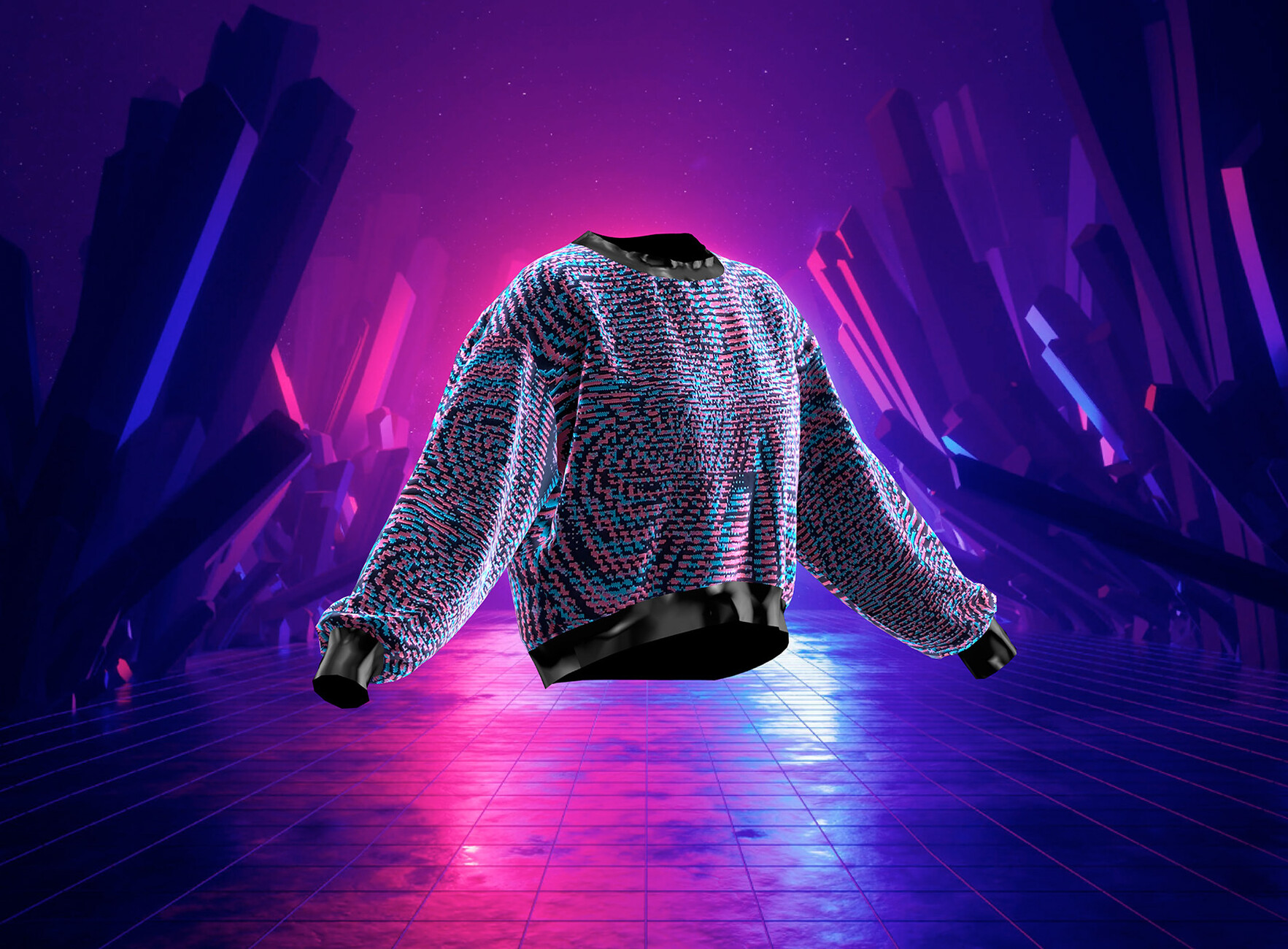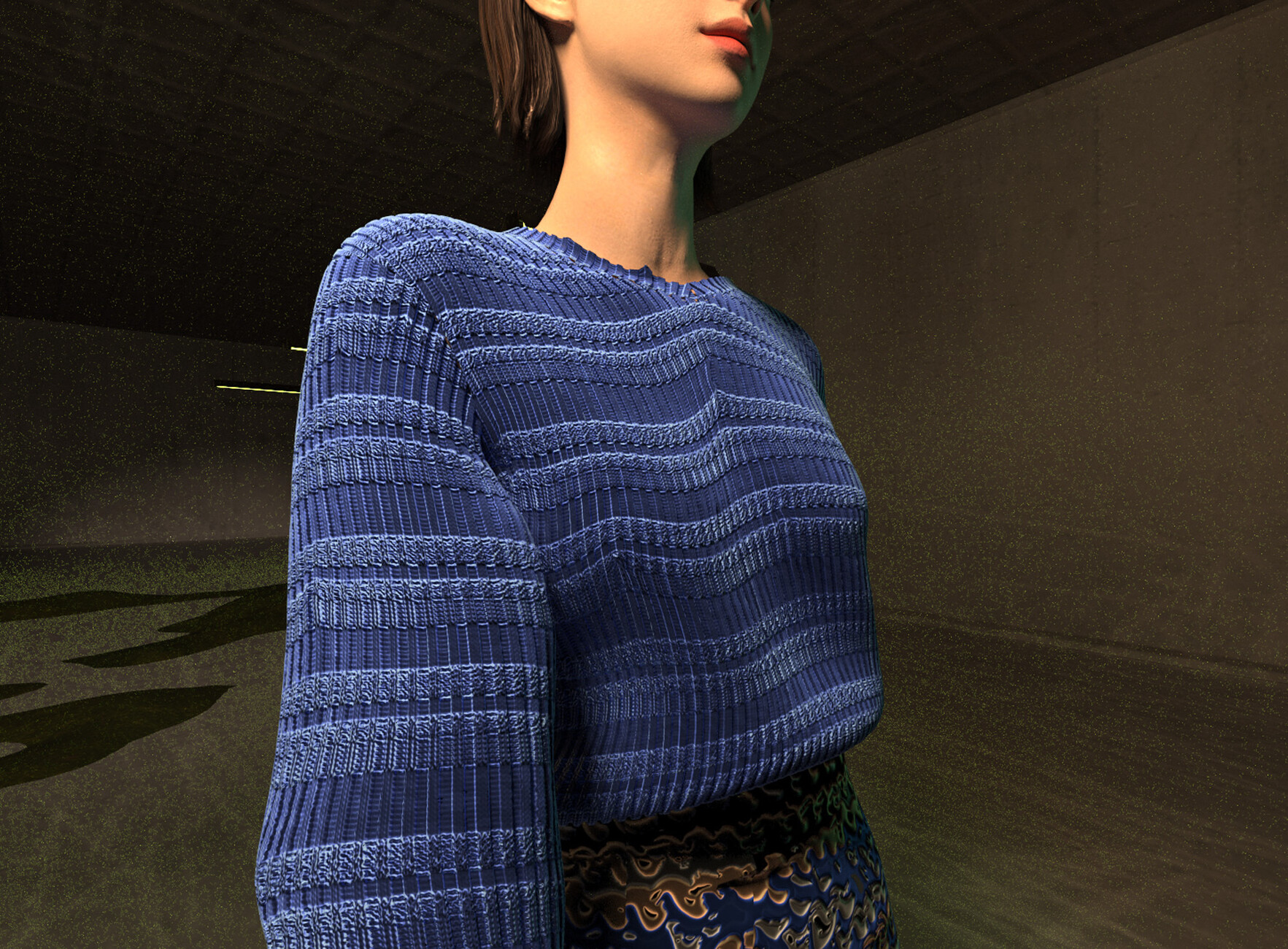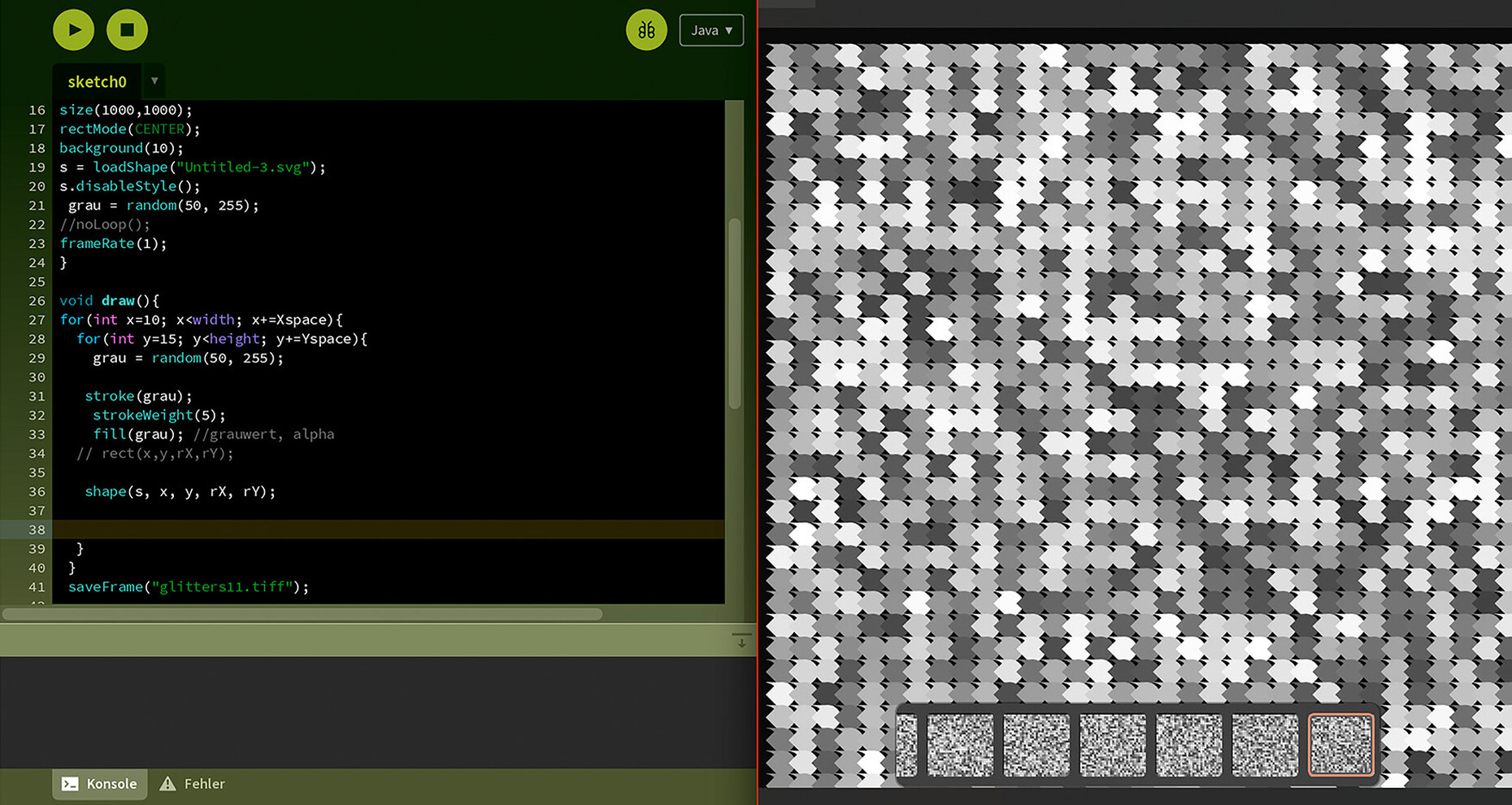YOUNG TALENTS
Researching for wings
Lilian Ingenkamp: You describe yourself as an explorative textile designer. What exactly do you mean by that?
Kateryna Basiuk: I'm a big fan of crime and detective stories. This probably also has an impact on my work as a designer. I can't just design. I want to explore things and get to grips with them. I enjoy that much more than just designing. I like working at the interface with other disciplines.
Your design approach combines craftsmanship, technology and interdisciplinary thinking. Where is this visible?
Kateryna Basiuk: I like to work on the topic of digitalisation. I take my expertise from the textile industry and combine it with another discipline. Like with creative coding. Programming allows you to write patterns that you can later translate into textiles. Or the ‘CLO3D’ software, which is about digital fashion, i.e. the three-dimensional design of textiles. For example, I think about what the fabric should look like, what structure and thickness the material has, and then programme these parameters for 3D models.
Do you have a background in IT or where does your technical knowledge come from?
Kateryna Basiuk: From university. I got to know the programmes there and got to grips with them out of sheer curiosity. I enjoy dealing with these topics. At the same time, I wrote a seminar paper on digitalisation in theatre costume during my studies.
You are originally from Ukraine and have been living in Lucerne since 2022.
Kateryna Basiuk: I fled at the beginning of the war. First to Poland, where my parents live. Later, my university offered to enter into partnerships with other universities so that we could continue our studies. The Textile Design programme in Lucerne appealed to me and it was the first university that responded.
At this year's Heimtextil, you won a prize in the University Contest 2025 with your project ‘Silent Canvas’. What is this work about?
Kateryna Basiuk: It is part of the Product & Textile research group project at Lucerne University of Applied Sciences and Arts. It's about ‘Circular Acoustic Absorption’, i.e. how new design solutions for acoustic panels can be created from old textiles. Circular economy and sustainability – that's a pretty hot topic. I have been looking into how to make this product more aesthetic. Whilst brainstorming, I came across an exciting study by the University of Bristol.
Who deals with bats and moths...
Kateryna Basiuk: Exactly. It's about the acoustic camouflage of special moth species that protect themselves from their natural enemy, bats. Under the microscope, you can see that their wings have a special structure that absorbs the ultrasonic waves of bats. It is quite similar to classic knitting, almost like patent patterns. I find it exciting that the absorption of acoustics also takes place in nature. The structure of the wings inspired me to transfer it to knitwear. So I used recycled yarn and tried out a lot. Later, I tested the textiles acoustically. It turned out that all the positive effects on absorption and sound insulation were present.
Circularity and sustainability are important topics. What do you think about the development taking place in the textile industry? Has anything changed in the meantime?
Kateryna Basiuk: I think so. But it happens slowly. Every change in society and in the world takes time. I work as a research assistant at the Lucerne University of Applied Sciences and Arts alongside my studies. We work intensively on these topics. But you also have to take the market into account. Not everything can be realised and integrated immediately. Nowadays, it's important to find a balance between environmental impact, quality, price and efficiency. There are many factors and it really takes time.
Is there a sustainable material that you think could change a lot in the textile industry and also be used on a mass scale?
Kateryna Basiuk: I personally think that natural fibres have this potential, especially if they are produced locally. For example, linen and hemp here in Europe. Or pineapple and banana fibres in other countries. Investing, developing and working with fibres locally can support the local industry and economy. Part of sustainability is also about finding local solutions and investing locally to solve global problems.
Where do you see potential for improvement in the textile industry? Where does the industry, but also customers, need to rethink?
Kateryna Basiuk: The most important thing is to change the mentality. Not only in the industry, but also among consumers. It is our responsibility not to overconsume, to use products carefully and to look after them well so that they last longer. The less demand there is for certain things and behaviours, the more the industry will change in a different direction. There needs to be a collective change in mentality.
One of your other projects is called ‘virtual textiles’. What exactly do you mean by that?
Kateryna Basiuk: I use this term to describe the digital design of patterns and the modelling of textiles. In digital space, I can see what a design looks like and whether it works without using materials. In creative coding, I tested patterns and experimented with different structures and materials for potential garments in CLO3D. It's like prototyping, but in a virtual space.
What do you think in general about technological innovations such as artificial intelligence?
Kateryna Basiuk: In a differentiated way. AI has only just become available to us and has already caused a great deal of excitement. I think it's a pretty exciting tool, but I see it more as a tool for googling general things faster, for example. You ask a question that is too specific for a search engine and you immediately get an average answer based on everything that has been entered into the AI. You can do that for general things. But if you analyse and think critically and also work with sources, then you should investigate thoroughly yourself. AI does not replace the thinking and design process. For complex questions, you need human resources.
A transfer feat like yours – from moth wings to knitting – would probably never have been achieved by an AI.
Kateryna Basiuk: For me, AI is a tool. We need to be careful and learn how to use it properly. It reminds me of the invention of the internet or the smartphone. There is a lot of scepticism at first, but later it becomes part of everyday life.
When you think about your own future, where would you like to work after graduation?
Kateryna Basiuk: That's quite a difficult question. Maybe I'll find out in my Master's project? Although I really like the research. It's about an explorative path, about conscious design and about finding solutions for topics such as circularity. I'm still thinking about it, but I would really like the research.
